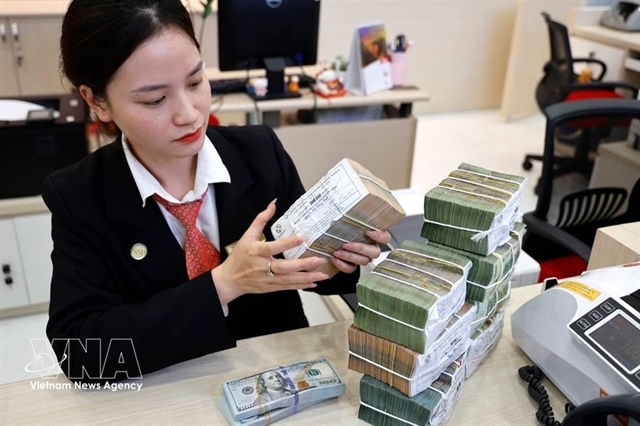Vietnam Banking Report 2018: Amidst earnings announcement, concerns about capital adequacy remain
Vietnam Banking Report 2018: Amidst earnings announcement, concerns about capital adequacy remain
In the first half of 2018, the Vietnamese banking sector enjoyed VND35.5 trillion (US$1.53billion) in net profit, equivalent to 64 per cent of the previous year. Thanks to improved financial efficiency, progress was made in tackling bad debt, effective digitisation and thriving bancassurance partnerships, while bank stocks have become more attractive again. By September 2018, the sector saw its stock price performance rise by 22 per cent since the start of the year.

In August 2018, Vietnam earned an upgrade in sovereign rating from B1 to Ba3 from Moody’s, and from ‘BB-‘ to ‘BB’ from Fitch, thanks to strong fundamentals, healthy export income, growth potential and lowering government debt. In tandem, 14 banks also had their credit ratings upgrading at Moody’s. Overall, banks came back stronger in 2017 and are looking forward to an equally rewarding 2018.
But words of caution have been voiced. Problems of capital adequacy remains and along with ongoing strong credit growth, is getting worse. In 2017, only six out of 14 banks managed to raise their charter capital by $613 million (41 per cent of planned). According to Moody’s, given the current credit growth, Vietnamese banks will need an approximate additional $7-9 billion to ensure Tier 1 capital ratios at 11 per cent in 2018 and 2019. Without external capital injections, the Tier 1 capital adequacy will fall to 8 per cent for JSCBs and 6.1 per cent for SOCBs by end of 2019, from 9.4 per cent and 6.9 per cent at the end of 2017.
Most banks had their CAR reduced by 1-2% in 2017 ...
To comply with the Government’s plan to be Basel II compliant by 2020, in 2018 banks will continue to devise plans to raise Tier 1 and Tier 2 capital. At the beginning of 2018, 10 banks announced plans to raise their charter capital by at least $1.4 billion.
In order to retain earnings, banks have managed to increase their charter capital by giving out stock dividends. This is to continue as banks try to keep as much cash in-house as possible. Given the performance of banking stocks over the past year, shareowners are happy to receive additional shares as well as cash dividends.
However, while stock dividends and bonus can only move funds from treasury shares to charter capital keeping Tier 1 capital intact, ESOP and new common shares issued could increase Tier 1 capital. In the first months of 2018, several banks all had their IPOs, taking advantage of the bullish stock market to add more funds to their Tier 1 capital, such as HDB, TPB and TCB.
Banking sector’s 2018 plans to increase capital
Meanwhile, issuing stock dividends and launching IPOs were not applied by State-owned banks VCB, CTG and BIDV. Although these banks have been petitioning to pay dividends in stocks rather than cash since 2015, with the national budget in deficit, the Ministry of Finance has been asking the banks to pay dividends in cash to contribute to the national budget. The story has continued in 2018 when VCB announced its dividends payment in cash in early September, with CTG and BIDV expected to follow soon.
Given the tight situation, SOCBs have been issuing long-term bonds with terms from 5-10 years to maintain its capital adequacy levels. BIDV has recently completed its second bond issuance in 2018, adding a total of VND430 billion, or $18.5 million, to its Tier 2 Capital. Vietinbank issued VND2.43 trillion worth of bonds, or $105 million, as an addition to Tier 2 Capital.
This method also has its restrictions, as Tier 2 Capital cannot be higher than Tier 1 Capital. While Tier 2 Capital has been inching up since the last quarter of 2016, it is bound to hit the Tier 1 ceiling soon.






















